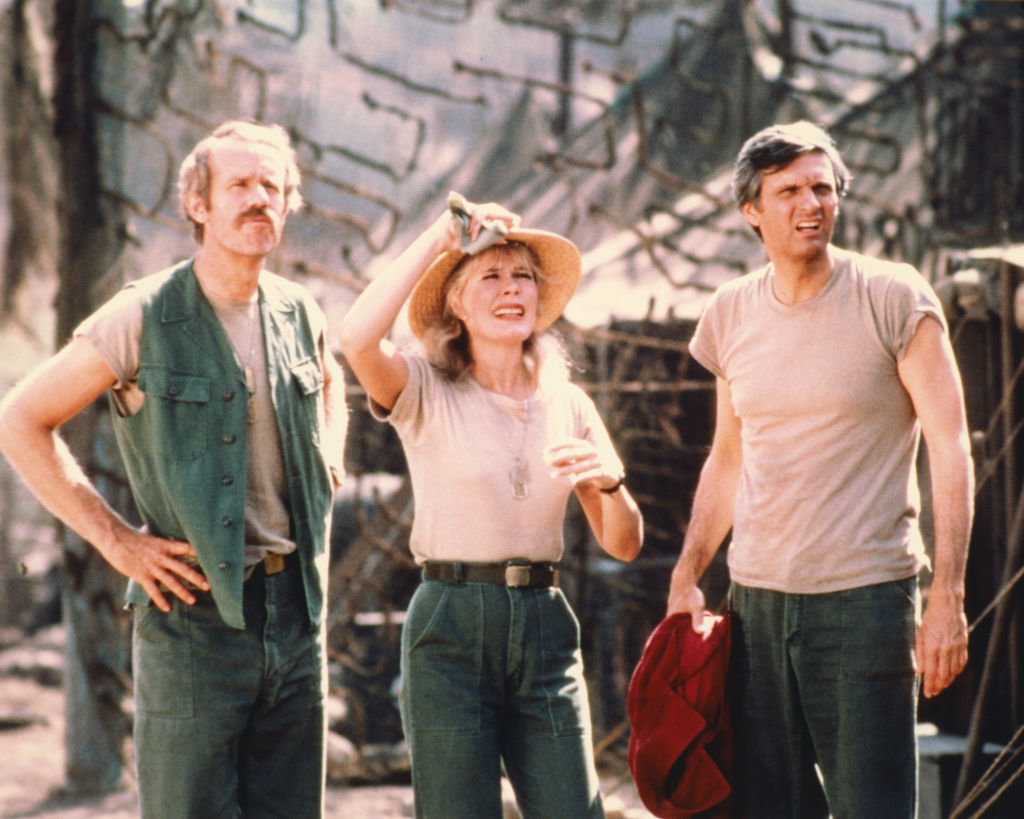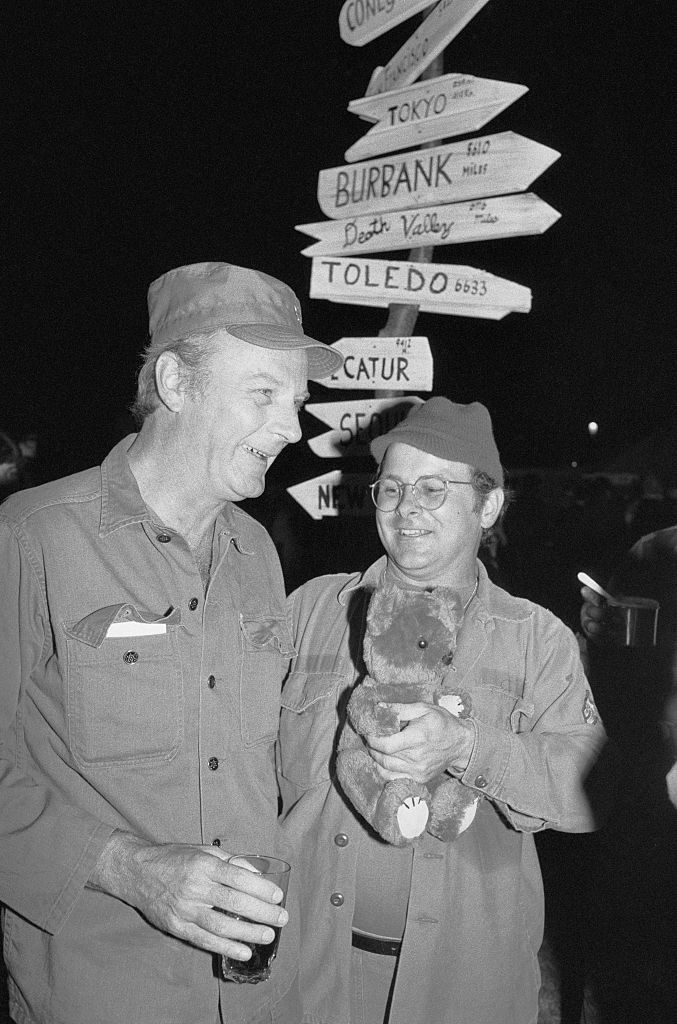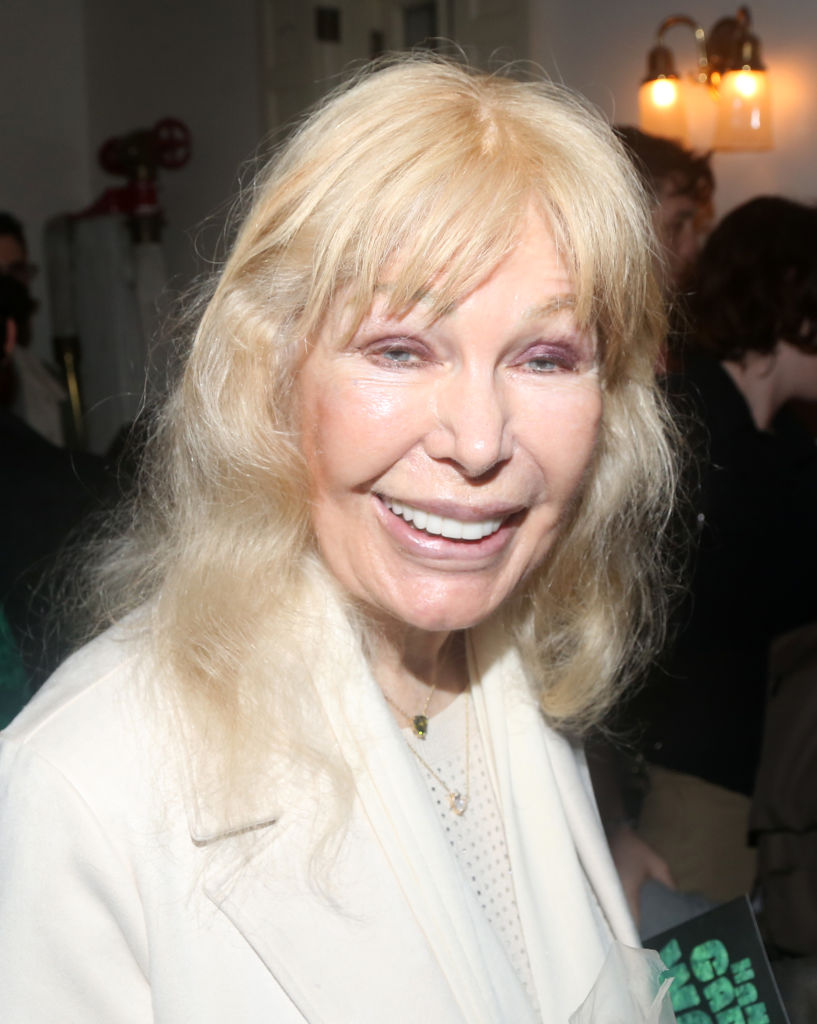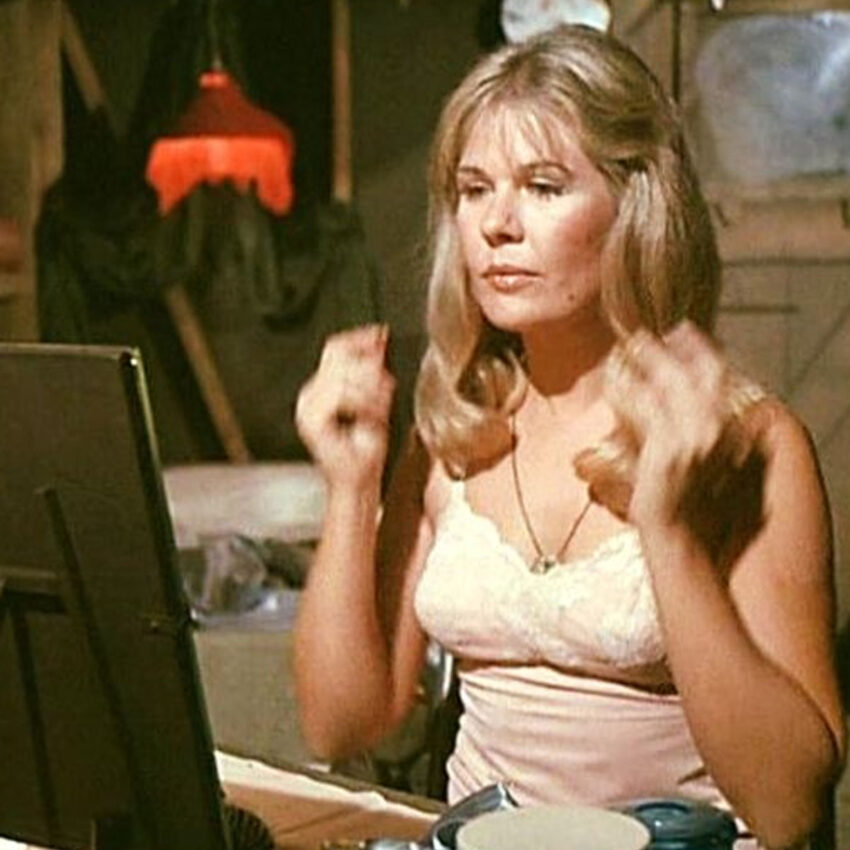If you’re a M*A*S*H fan like me, you probably think you’ve seen it all – the hilarious moments, the touching scenes, and the unforgettable characters.
Renowned for its sharp writing, emotional depth, and witty satire, MASH quickly became a beloved cultural touchstone and a staple of American television.
However, behind the scenes, the show was not without its share of mistakes, anachronisms, and continuity slip-ups — many of which flew under the radar of its loyal fans…
As a kid of the ’80s, MASH was always on in the background, its theme song playing just around bedtime. I never got past the intro before I had to turn the TV off, but years later, I gave the series chance — and I’ve loved it ever since.
If you’re a M*A*S*H fan like me, you probably think you’ve seen it all – the hilarious moments, the touching scenes, and the unforgettable characters.
Renowned for its sharp writing, emotional depth, and witty satire, MASH quickly became a beloved cultural touchstone and a staple of American television.
However, behind the scenes, the show was not without its share of mistakes, anachronisms, and continuity slip-ups — many of which flew under the radar of its loyal fans…
As a kid of the ’80s, MASH was always on in the background, its theme song playing just around bedtime. I never got past the intro before I had to turn the TV off, but years later, I gave the series chance — and I’ve loved it ever since.

MASH wasn’t just a TV show; it was a cultural phenomenon that brought families together. Its final episode in 1983 captivated nearly half the U.S. population and still holds the record for the most-watched prime-time episode to date.

As you probably know, MASH was set during the Korean War, focusing on a group of doctors and nurses at a mobile army surgical hospital (MAS*H). They navigate the challenges of war, medicine, and personal relationships, all while using humor and heart to cope with the chaos around them.
It’s one of those shows that leaves a lasting mark, and now, as I revisit some of the episodes, I’m noticing the little-known mistakes and bloopers that make it even more fun to watch. Did you know about these?
Fatal case of hepatitis
Did you know that William Christopher, who played the lovable Father Mulcahy, once had a serious run-in with hepatitis during season five?
The illness nearly took him out of the show for good. Producers even considered writing Mulcahy off the series. But here’s where it gets good: Alan Alda, being the stand-up guy he is, wasn’t having it. He knew how important steady work was for Christopher, especially with his son’s autism.
So, Alda wrote a whole episode (Hepatitis) that cleverly incorporated Christopher’s illness into Mulcahy’s storyline. Talk about a good friend — and an even better solution to keep Father Mulcahy in the mix.
Frank Burns’ tumor prophecy
Here’s another intriguing bit of MASH trivia that will give you chills.
In the Hepatitis episode, the sharp-tongued Hawkeye (Alan Alda) is examining Frank Burns, and Frank casually mentions, “I do have a pea-sized tumor under my sternum.”
Well, as eerie as it sounds, the actor behind Frank, Larry Linville, actually passed away years later from a malignant tumor under his sternum. Sometimes life imitates art in the most unexpected — and slightly spooky— ways.
From one-episode wonder to fan favorite
Not many actors would be willing to wear dresses and skirts like Jamie Farr did as Klinger in MASH, but he pulled it off with incredible charm and humor. He truly nailed the role of Max Klinger, and honestly, the show wouldn’t have been the same without him.
But did you know that Farr was originally only meant to appear in one episode? However, he became such a fan favorite that he was made a regular on the show.
The truth about the dog tags
And those those dog tags Jamie Farr wore on the show? They were actually his real military dog tags from his time in the service before he became an actor!
Farr himself revealed in an interview on the Medicine and Martinis box set that the tags had his personal info, including his name, serial number, and even his religion. Talk about bringing authenticity to the role!
Did you spot the military mistakes?
In the classic season 2 episode For the Good of the Outfit, the show not only served up some iconic moments but also raised a few eyebrows when it comes to military accuracy. One of the most noticeable mistakes? A Bell Huey UH-1 helicopter hanging in Henry Blake’s office. The catch? The Huey didn’t even take its first flight until 1956, years after the Korean War setting of MASH. So, it’s safe to say that little piece of military history doesn’t exactly fit the timeline!
The death of Lieutenant Colonel Blake
The death of Lieutenant Colonel Blake in MASH was one of the most shocking and talked-about moments in TV history. Fans and critics alike were stunned when McLean Stevenson, who was leaving the show in 1975, was killed off in such an unexpected and dramatic way (plane crash on the way back to the States).
At the time, it was unheard of for a major character to be killed off so abruptly in a primetime series. While many were taken aback, the show’s writers and producers defended the decision, explaining it was meant to make a powerful statement about the brutal realities of war.
Producers made a pact
But story of Colonel Blake didn’t end with that shocking episode.
After receiving an overwhelming amount of hate mail following the shocking death of Lieutenant Colonel Blake, the show’s writers and producers made a pact.
They agreed that, in the future, if any actor decided to leave MASH*, they would never again give their character such a tragic send-off. The backlash was so intense that it led to a shift in how character departures were handled on the show.
The secret behind Radar’s left hand
Spanning over seven seasons from 1972 to 1983, Gary Burghoff starred in the series as the loveable Cpl. Walter ‘Radar’ O’Reilly, a naive farm boy working as the company clerk and sometimes bugler.
But did you ever noticte that Gary Radar had a little-known feature that he worked hard to keep out of the spotlight? Born with a condition called Poland syndrome, which causes the chest muscle to be underdeveloped and sometimes leads to webbed fingers, Gary would cleverly hide his left hand during scenes.
Whether it was holding a clipboard or keeping it tucked away in his pocket, he made sure the focus stayed on his acting and not on his hand.
Why Radar left M*A*S*H
After appearing on every episode for the first three seasons, it was reported that Burghoff’s demanding schedule was taxing on his family life, which resulted in reducing his character’s appearances to 13 episodes, down from his previous 24.
Season seven marked Radar’s departure, with a two-part farewell, Good-Bye Radar, that explained his discharge from the army.

When Burghoff left M*A*S*H, he didn’t leave with much.
“I didn’t leave M*A*S*H a wealthy man,” Burghoff said in an interview with People. “I could have renegotiated my contract, but money wasn’t the most important thing in my life…You either want to be rich and famous, or you want to be a daddy. You can’t do both.”
Radar’s rabies remedy
In the episode Mad Dogs and Servicemen (1974), Radar is bedridden with what might be a rare case of rabies.
To cheer him up, Margaret reads him a letter mentioning two popular songs: ”Diddy Wah Diddy” by Bo Diddley and ”The Wayward Wind” by Gogi Grant. The catch? Both songs were released in 1956, several years after the Korean War ended.
Too stylish for the front lines
Not all of the MASH characters are sporting Army-appropriate haircuts for the 1950s! As the series goes on, it’s clear that only Colonel Potter and Major Winchester really look like they could have served in a 1950s Army unit. The rest? Well, let’s just say they were a bit too fashionable for military regulations.
Hawkeye’s ever-changing backstory
Hawkeye’s backstory is a bit of a wild ride throughout MASH. At first, he’s from Vermont, with both parents alive, a married sister who sends him a giant homemade sweater, and even a nephew.
But as the series goes on, his story shifts. Suddenly, he’s from Crabapple Cove, Maine, as an only child, with his mother passing away when he was just 10. Guess the details were a bit… flexible! Alan Alda, who played Hawkeye, didn’t mind the changes though. He loved how his character could evolve and grow throughout the series, even if it meant bending the facts a little.
Hawkeye’s sarcasm, Alda’s genius
Did you know that Alan Alda made history by becoming the first person to win Emmys for acting, writing, and directing for the same series? Now that’s some serious talent.
When Winchester grumbles about Hawkeye and BJ singing in the shower in the Comrades in Arms episode, Hawkeye quips, “Don’t blame me, I didn’t write this stuff.” But here’s the twist — Alan Alda, who played Hawkeye, actually did write it!
This little moment perfectly showcases Alda’s talent for blending humor and character-driven storytelling.
Truth about Loretta Swit and Alan Alda
For those who loved the earlier seasons of MASH but weren’t as fond of the later ones – and for those who feel the opposite – I’d say the early MASH was a fantastic comedy, while the later seasons turned into an outstanding blend of drama and comedy.
Now, let’s talk about the show’s iconic duo: Hawkeye and Margaret Houlihan, played by Alan Alda and Loretta Swit. Their relationship adds a fascinating layer to the shift in tone from comedy to drama.
Their relationship adds a fascinating layer to the shift in tone from comedy to drama. In the early seasons, their dynamic was filled with mutual respect as skilled medical professionals, with a little bit of simmering attraction thrown in. As the show evolved, their connection deepened, moving from witty banter to a more dramatic, emotional bond.
Hawkeye and Margaret’s pivotal moment
In an interview with Yahoo, Swit explained: ”They became loving friends. There are different kinds of love, and there was a very strong love between them. If you look at the series over time, their relationship grew and deepened. In the beginning, Margaret thought he was a genius surgeon, so there was respect there.”
The sparks finally flew in the two-part Season 6 episode Comrades in Arms when they were stranded together overnight, surrounded by North Korean bombs. After a heart-to-heart chat, they gave in to their feelings and shared one passionate night together.
Although their night together didn’t spark a lasting romance, Swit says it was a crucial turning point for both characters.
”Alan had written ‘Comrades in Arms’ for us several seasons before he actually did it, because the creators weren’t sure the audience would accept it,” Swit revealed.
”But it was a turning point, and it spoke to the totality of M*A*S*H — it contained everything: it contains tears and laughter and silliness and survival. That’s why people tuned in.”
Loretta Swit’s nails
If you take a close look at Loretta Swit’s portrayal of Margaret Houlihan in MASH. there’s one thing that stands out: her nails.
In the Comrades in Arms episode, her nails are over an inch long. Seriously! No nurse, especially a head nurse in a war zone, would have nails that long. Maybe Margaret had a thing for glam, but it definitely wasn’t the most realistic choice for a wartime medical professional.
Loretta Swit never liked the nickname ‘Hot Lips’
Loretta Swit wasn’t exactly thrilled about the infamous nickname given to her character, Major Margaret “Hot Lips” Houlihan.
In an interview with Fox News Digital, she shared how she felt about it: “I get that nicknames come from affection, but to me, it felt like an insult. She wasn’t just a body part; she was a major in the U.S. Army, and she deserved respect.”

Looking back, Swit admitted she took matters into her own hands when it came to phasing out the “Hot Lips” nickname.
”I think my perseverance probably became very annoying,” she said. ”But I felt it was important for the women out there who were supporting our country. I kept telling the writers, ‘She’s so much more than this.’”
Loretta Swit plastic surgery
When looking at pictures of Loretta Swit today, many people have noticed what seems like some changes that could be linked to plastic surgery. While Swit has never openly addressed this, some of the images do raise eyebrows. But could it be that this transformation began even back during MASH*? One Reddit user, bettinafarichild, shared an interesting observation:
“I’ve seen all MAS*H episodes a zillion times, but I just watched it in chronological order for the first time and noticed a number of little things I’d never noticed before. Am I just unobservant or are these things subtle? For example: Loretta Swit has plastic surgery in the middle of season 6. She gets a cleft chin which is a really distinct change, and at some point also got a nose job, I’m not sure which season, maybe season 9.”
This has certainly sparked some curiosity among fans, though it remains a topic of speculation.
The longest kiss
Now, for one last fun fact — MASH fans know the show had its emotional moments, but the finale gave us one of the longest kisses in television history.
Bringing ”Comrades in Arms” full circle, Hawkeye bids farewell to Margaret with a kiss so awkward and lengthy that it leaves their remaining colleagues feeling pretty uncomfortable.
To wrap up Margaret’s journey, Swit recalls the sweet moment: ”It’s the longest kiss in television history,” she said.

Alda, who directed the final episode, and Swit were the only two main cast members to be part of both the series premiere and the series finale, marking a special bond between them that spanned the entire show’s run.
”The finale was really about tying everybody together and satisfying the audience who all have their favorite characters. Alan wrote me a note after the show ended about how wonderful it was to have that opportunity to fulfill Margaret’s character and see her grow meaningfully.”
If you’re a fan of MASH*, why not share this article with your friends and family? It’s the perfect way to spark some fun conversations and reminisce about the unforgettable characters that made us laugh and cry. Tag someone who’d enjoy a blast from the past – let’s spread the nostalgia!
